Rev. Dr Titus Olorunnisola is a post-doctoral Research Associate at the University of Divinity, based at Whitley College. Titus is an alumnus of the University of Divinity, graduating with a Doctor of Philosophy in 2016. He is currently the Research Project Officer at Whitley College, and has adjunct roles at Alphacrucis and ACOM, in addition to being a Research Associate with the Christian Research Australia. He is the CEO of Action Research Centre, Melbourne.
Titus, what is your area of research?
I am interested in researching the intersection between faith, culture, and Christological expressions. Christology deals with understanding the life, the person and ethics of Jesus as the centre of the Christian faith. It encapsulates how the role of Jesus Christ to humanity influences Christian response to contemporary challenges such as globalisation, politics, development, migration, refugee and asylum seekers’ resettlement, and violence against the people on the fringe of society. I undertook my PhD in Christology and social transformation. The kind of conversations that I had with my doctoral advisors widened my horizon about how theology should influence the praxis of faith in diverse contexts.
As part of my role as Research Project Officer at Whitley College, I have been working with some reputable scholars such as Prof. René Erwich, Assoc. Prof. Darrell Jackson, Dr Eleanor Flynn and Dr Cathie Lambert at the University of Divinity on the “Spirited Project.” Funded by the University of Divinity’s Extraordinary large grant, the Spirited Project focuses on equipping family and friends who wish to offer spiritual care to persons living with dementia.
On the side of that project, I also commenced a research initiative, an organisation called Action Research Centre Ltd. We research and develop credible evidence to influence policy direction for addressing issues of domestic and family violence homelessness, and refugee resettlement. These are some of the vital issues that the church and the entire society are grappling with. We recently commenced a project which addresses the issue of shame, and negative public perception of women who are experiencing or at risk of mental health among culturally and linguistically diverse (CALD) communities. This project is titled “Deconstructing Negative Mental Health Perception through Stories of Hope and Survivors among CALD Women.” This project is funded through a grant from the Lord Mayor’s Charitable Foundation. The project will develop evidence-based approaches to challenging the stigma associated with mental health across cultural lines and proposes a campaign to help women to speak out and seek help through storytelling.
In a nutshell, my main goal is how theology through the lens of Christology provides an impetus for understanding and responding to contemporary issues in ways that ameliorate negative experiences of people.
What initially drew you to researching this area?
My attention was drawn to my current research area through my critical reflection on the implications of Christology for the praxis of Christian life. When Dietrich Bonhoeffer asked several years ago that “Who is Jesus Christ for us today?”, he was confronted by the problems of his days and how Christology can provide a stimulus for acting decisively in tackling the issues of power politics and racial discrimination, etc. Sadly, those challenges are still staring us in the face today. If you look at society in general, people are more interested in how your faith/belief inspires your actions rather than what you claim to believe.
Again, Jesus Christ was the man for the underside and marginalised. He embraced the poor rather than the rich, associated with prostitutes, tax collectors, and children. Their concerns were of paramount importance to him. He consoled the outcasts and identified with the less privileged so that he might create equality and restore all of humanity through a mission that climaxed in his death.
Who has been an important part of this research journey?
My initial scholarship formation took place during my doctoral research through the many conversations I had with my doctoral supervisors Rev. Fr Dr Larry Nemer (SVD) of blessed memory and Rev. Fr Dr Gregory Brett (CM). They provoked my thoughts beyond the pigmentation of academic Christology to the praxis Christology. They both made indelible marks on me. As I began to develop a postdoctoral research career, I have equally benefitted from the mentoring advice from individuals such as Prof. Wendy Meyer and Assoc. Prof. Darrell Jackson among others.
What impact do you hope your research has on the churches and community in Australia and internationally?
My research is very significant for Australian churches and community at large for a number of reasons. Firstly, it addresses the existential realities and the disparities that is often evident in different layers of society. We have embraced the resurgence of globalisation in our lifetime but we are also learning to tackle or I should say, cope with the challenges it brings upon us. The government is not only worried about the spate of violence against women, and the best approach to fostering the resettlement of refugees and members of immigrant communities, it is also concerned with developing credible and reliable evidence that will propel social change.
Secondly, the type of research that I do creates a pathway to policy dialogue and social change. Everyone can share emotional and sentimental views about policy directions and how policymakers ought to create policies that would remove people from marginality. However, we can only experience true social change not just by speaking about a change that we anticipate but most importantly by contributing to structures that would make the desired social change visible. Churches are collaborating with different NGOs and policymakers to lend a voice to advocacy on a range of social issues. My research will contribute to what the churches in Australia are already doing and I have no doubt that we shall continue as partners in progress in this regard.
What have you learned from your recent research?
One of the significant lessons that I’ve learnt recently is the need to bridge the existing dichotomy between theological research and the lived experiences of people. To most people, theology is a boring subject and to be candid, it could be really boring. However, it depends on where you are coming from, and the nature and focus of your research. We can bridge the gap by bringing theological lenses to research subjects that directly touch on the common experiences of our society. That is the research of the future, that is the type of research that I will love to do.
What do you hope to research next?
My next research will focus on the perpetuation and prevention of domestic and family violence through religious/spiritual beliefs and practices. Domestic and family violence is a reality that often confronts people in different ways both people of faith with those with no organised religious affiliation. Religious and spiritual beliefs and practices of an individual or a group can serve as a driver for domestic violence. What are the current manifestations of this across religious spectrums? Similarly, spiritual/religious beliefs can constitute a powerful instrument for liberating victims of DFV and can also assist with early prevention, but how can we achieve this? This project will further explore the use and abuse of religious texts to perpetuate/prevent domestic violence.


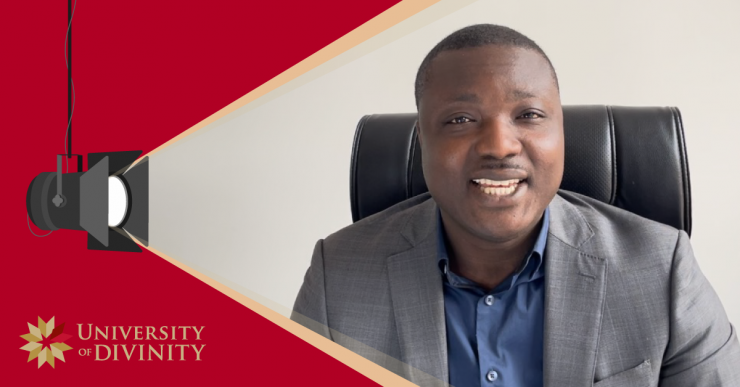
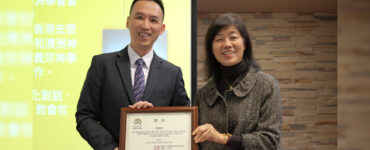
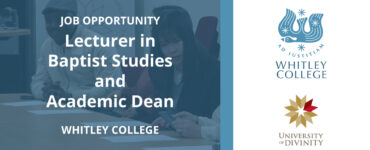
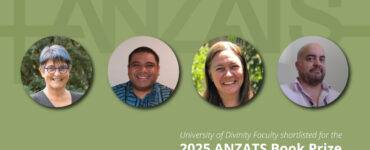
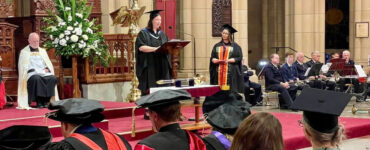
Sir,
This is excellent.Please kindly do put me informed as you embark on your next research on “Perpetuation and prevention of domestic and family violence through religious/spiritual beliefs and practices”. There are lots I will definitely learn through such research and integrate into my daily religious and spiritual responsibilities within the society God has placed me.Thanks a lot sir.
Victor Abiodun Ojediran
Pastor-Emmanuel Baptist Church, Abule-Otun, Lafenwa, Ogun State.
Nigeria.
Thankyou for overseeing work of such high and much needed value, Titus. Building a research base to create social change is something we can all support.
[…] Titus was recently interviewed for Vox’s Research Spotlight series, where he elaborates on his work in this area as well as his other research. You can read the interview here. […]